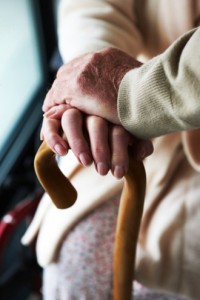 September 22 was National Fall Prevention Awareness Day and Jamaica Hospital Medical Center’s Trauma Division wants to make sure you and your loved ones are taking the proper steps to avoid these preventable incidents.
September 22 was National Fall Prevention Awareness Day and Jamaica Hospital Medical Center’s Trauma Division wants to make sure you and your loved ones are taking the proper steps to avoid these preventable incidents.
According to The Centers for Disease Control and Prevention, “falls are the leading cause of injury leading to death for adults 65 or older and are also the most common cause of nonfatal injuries and hospital admission for trauma for this age group.” Falls are also the most common form of traumatic brain injuries in older adults.
As we get older, physical changes and health conditions — and sometimes the medications used to treat those conditions — increase the chances of falls. It is very important to follow these simple steps to decrease your chances of falling:
• Make an appointment to see your doctor to determine your risk of falling. Discuss the factors that increase your chances of falling, including your medical history, your muscle strength and your medications to see if they have side effects such as dizziness or weakness. You should also have your sight and hearing tested regularly.
• Find a good exercise program aimed at building balance, strength, and flexibility. Consider activities such as walking, water workouts and even tai chi. Ask your doctor to write a referral to a physical therapist, who can create a customized exercise routine for you if you are unsure.
• Wear appropriate footwear. High heel shoes, slippers, sandals, or any shoes with slick soles can greatly increase your chances or slipping and falling. Instead, wear properly fitting shoes with nonskid soles. Choose shoes with laces or fasteners over slip-ons and women should avoid walking in stocking feet.
• Look around your home and remove any tripping hazards. Remove any boxes, electrical cords or stacks of paper from the floor and move furniture from high traffic areas. Secure loose rugs with double-sided tape and use nonslip bathmats in the bathtub.
• Properly light your living space by placing nightlights in your bedroom and in your hallways. Create clear paths to light switches and always turn on lights before using the stairs. Also, store flashlights in easy to find locations in the event of a power outage.
• Speak with your doctor about the utilization of assistive device such as canes or walkers for balance. Other assistive devices that are recommended for the home are handrails for both sides of stairways, nonslip treads for bare-wood steps, grab bars for the shower, and a raised toilet seat with armrests.
Falls are a largely preventable public health problem. Jamaica Hospital’s Trauma Division urges older adults and their loved ones to follow these fall prevention measures and live safe, healthy lives.
For more information about falls or other trauma related issues, please contact Jamaica Hospital’s Trauma Division at 718-206-8552.
All content of this newsletter is intended for general information purposes only and is not intended or implied to be a substitute for professional medical advice, diagnosis or treatment. Please consult a medical professional before adopting any of the suggestions on this page. You must never disregard professional medical advice or delay seeking medical treatment based upon any content of this newsletter. PROMPTLY CONSULT YOUR PHYSICIAN OR CALL 911 IF YOU BELIEVE YOU HAVE A MEDICAL EMERGENCY.
